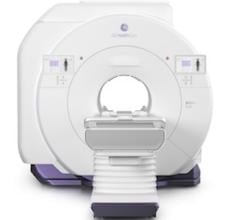
July 10, 2012 — New and updated evidence-based guidelines to help healthcare providers choose the most appropriate medical imaging exam or radiation therapy for a patient’s clinical condition are now available via the latest version of the American College of Radiology (ACR) Appropriateness Criteria. These continually updated criteria are a national standard, developed by expert panels of physicians from many different medical specialties.
In the latest version, the ACR updated 39 appropriateness criteria topics and added five new criteria — breast cancer screening, radiologic management of gastric varices, imaging of mesenteric ischemia, definitive therapy for early-stage cervical cancer and radiation therapy for small-cell lung cancer. ACR Appropriateness Criteria guide physicians when ordering exams and help ensure that patients get the right scan or therapy for the right indication. The criteria have also been shown to improve quality, reduce unnecessary exams and lower costs.
“In today’s society, evidence-based medicine is critical for the optimal management of cancer patients. Use of ACR Appropriateness Criteria allows physicians to educate themselves regarding the latest evidence-based approach for a wide variety of therapeutic decisions to provide the best care for their patients with cancer,” said Benjamin Movsas, M.D., FACR, chair of the ACR Committee on Radiation Oncology Appropriateness Criteria.
ACR Appropriateness Criteria provide a tool for more effective clinical decision-making and to help ensure that imaging is neither over- nor under-utilized. The criteria include topics from more than 350 expert panelists in breast, cardiac, gastrointestinal, musculoskeletal, neurologic, thoracic, urologic, pediatric, vascular and women’s imaging, as well as interventional radiology and radiation oncology. There are 180 topics with over 850 variants available.
“ACR Appropriateness Criteria can help providers identify when they can replace an exam that uses ionizing radiation with one that does not, or even when no imaging exam may be needed at all. This can reduce patient and population exposure to radiation and ensure appropriate imaging, without disrupting the doctor-patient relationship or delaying needed care,” said E. Kent Yucel, M.D., FACR, chair of the ACR Committee on Diagnostic Imaging and Interventional Radiology Appropriateness Criteria.
For more information: http://www.acr.org/Quality-Safety/Appropriateness-Criteria


 February 20, 2026
February 20, 2026 









